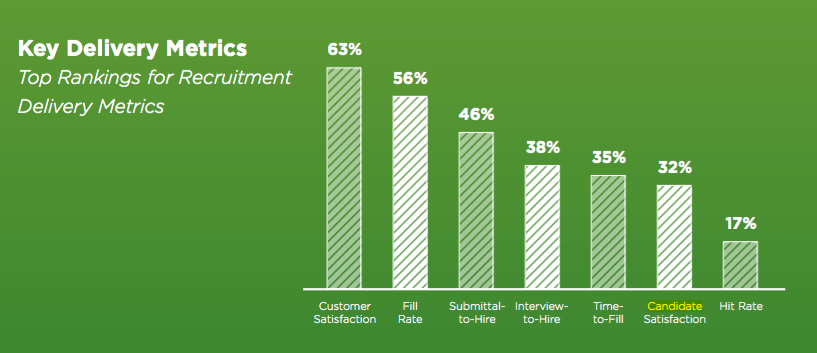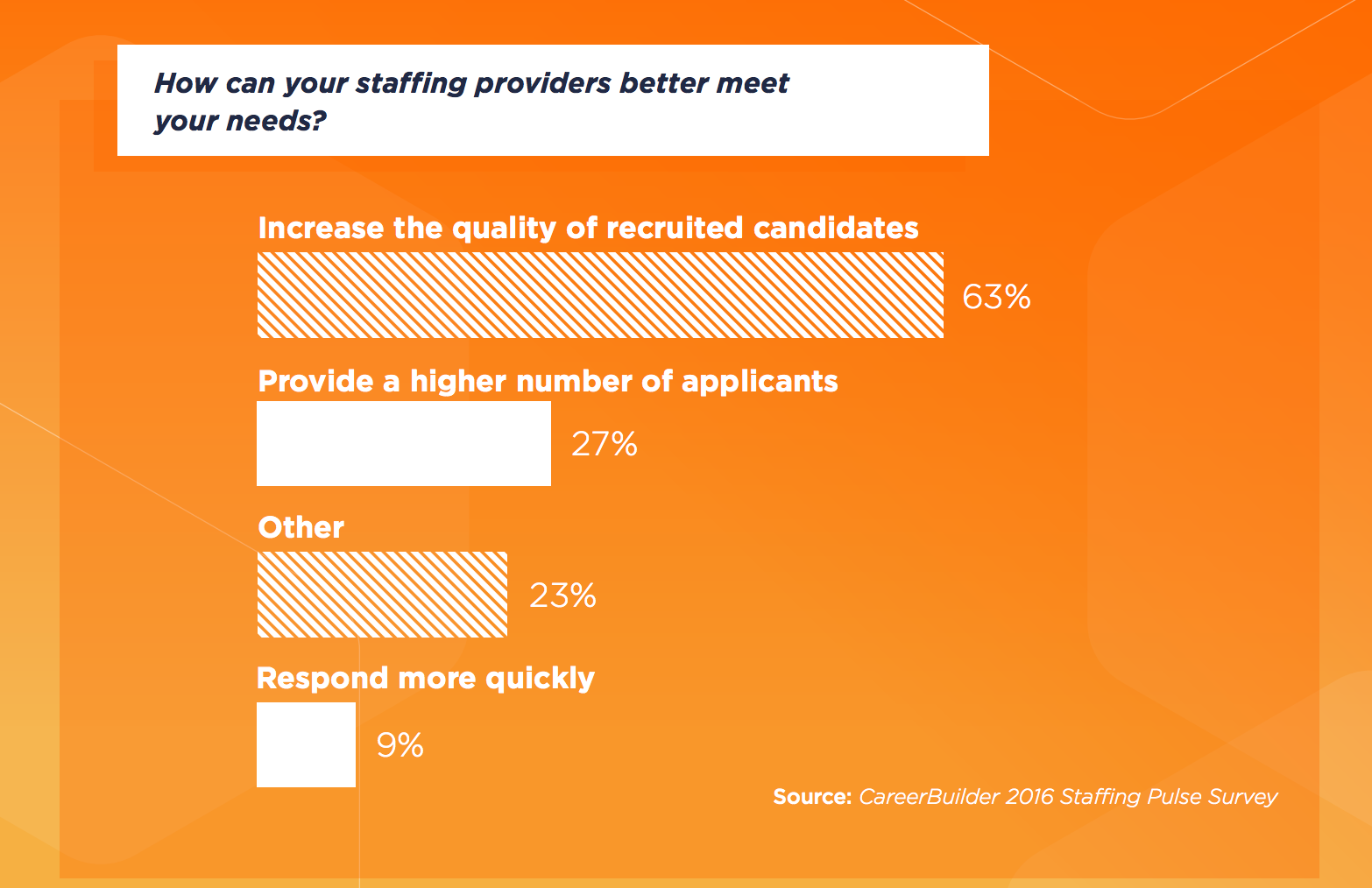Client satisfaction is crucial to the longevity of any business, but this is especially true in the staffing industry. Staffing firms that don’t generate repeat business aren’t likely to stick around.
Given this intense pressure to keep clients happy, it’s easy for candidate satisfaction to get pushed to the back burner. But neglect the candidate experience at your own risk: unhappy candidates lead to unhappy clients.
Candidate Satisfaction Gets the Short Shift
In the 2017 Staffing and Recruiting Trends Survey, staffing professionals ranked customer satisfaction as the top metric for measuring how well their recruitment delivery processes are working. Candidate satisfaction didn’t fare nearly as well. Almost half as many staffing professionals cited candidate satisfaction as a top three metric for measuring success (32 percent).

It’s no surprise that client satisfaction is at the top: 78 percent of staffing firms expect to generate a majority of revenues from existing clients. But given the connection between candidate quality and client satisfaction, firms that fail to focus on the candidate side of the equation risk undermining their client relationship efforts.
The Link Between Candidate Satisfaction and Client Satisfaction
When CareerBuilder asked staffing clients how their providers could better meet their needs in a recent survey, 63 percent said to increase the quality of candidates. The takeaway is clear: to make clients happy, staffing firms must focus on candidates. Instead of thinking of customer satisfaction and candidate engagement as competing priorities, think of candidate engagement efforts as a vital component of your client satisfaction plans.
Unhappy candidates lead to fewer redeployments, bad word of mouth, and ultimately hurt your firm’s chance to recruit the best quality candidates available.

Measure Candidate Satisfaction to Improve It
Less than half (48 percent) of staffing professionals surveyed in the 2017 Trends Report consistently record candidate satisfaction. How can your firm improve candidate satisfaction if you don’t know how you’re doing and why you may be missing the mark?
Staffing firms that actively solicit candidate feedback—the good, the bad, and the ugly—are better positioned to generate positive word- of-mouth referrals and to build loyalty among talented professionals.
Don’t just take our word for it: Firms that actually do measure client and candidate satisfaction rate themselves higher in service delivery and anticipating needs than those that don’t. The difference is particularly prominent in ratings for anticipating candidate needs: the 42 percent that track satisfaction say they’re doing an excellent job, compared to 20 percent of those without formal metrics in place.
So If you’re serious about improving the candidate experience, take a proactive, data-based approach to start seeing real improvement to the candidate experience your firm provides.